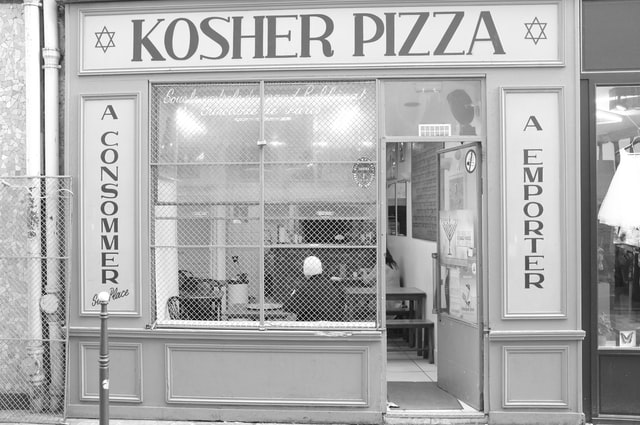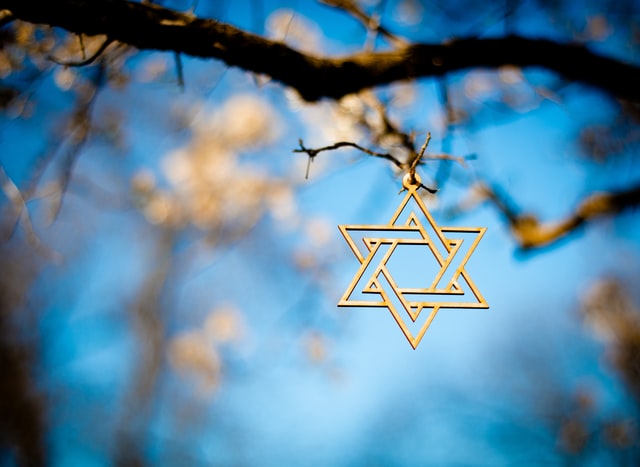Introduction
There are very few Jews in Korea. In 2012, this was estimated at just 100 people, but more recent estimates put the number at around a thousand. So it’s understandable that the question of whether soju is kosher doesn’t come up often. After all, that’s only about 0.002% of South Korea’s population of nearly 52 million!
But this is still a very important question for Jews elsewhere in the world. People who like to go out drinking with their Jewish friends will definitely want to know the answer too. That’s why we’ve done the research to find out whether soju is kashrut.

What does it mean for soju to be kosher?
Even if you’re only slightly familiar with kosher food, you’ll understand the basics. Kosher is used to describe foods that have been prepared or processed in a way that is compliant with certain Jewish religious laws.
Kosher food is a bit different than its non-kosher counterpart. Kosher foods don’t have any meat, fish, poultry, or dairy ingredients. They also famously can’t be prepared in contact with such foodstuffs.
There are two main levels of kosher certification, called hechsherim. A kosher certification is a sign that a product is fit for consumption by the Jewish people.
Major kosher certifications include the following:
- The OU, used by the Orthodox Union, the largest kosher certification agency in North America.
- The kashrut symbol (certified kosher), which identifies that a food product meets kosher standards.
- Certified kosher pareve, which identifies that a food product contains neither food nor dairy.
Whilst lots of countries have their own rabbinical certification agencies or groups, South Korea does not appear to have its own. Various companies in Korea offer this service in partnership with foreign organisations, however.
This makes it difficult for soju to be granted a hechsher. Finding a rabbi to approve the drink is difficult enough! Not to mention that for many distillers, it might not be worth the effort given the small target market.

Is soju kosher?
Unfortunately, this is quite a difficult question to answer. For the reasons set out above, no soju has been awarded hechsher status. But a few rabbis have thought about this question.
The Chicago Rabbinical Council offers kosher certification services. They have set out whether drinks are ‘certified’ as kosher. For many that aren’t, the rabbis have approved them as kosher based on their review.
The CRC have listed soju as “requires certification”. This means the rabbis aren’t sure, and haven’t been able to certify it as kosher.
The Chabad Jewish Association of Korea have also thought about soju’s Kashrut status. They’re just not sure whether it’s kosher or not. They state that this is because animal products might be used in the distillation process.
However, we here at DrinkPirate.com are experts on soju. We aren’t aware of this being the case.
That said, there’s always a risk with any manufacturing process. Producers often can’t guarantee that cross-contaminants aren’t introduced into the procedure. You’ll probably have seen this on many food labels.
Also, as we pointed out in our article on whether soju is gluten free, certain brands may contain grains. In particular, the popular Jinro Chamisul brewer uses grains as part of its process. This may increase the risk of non-kosher preparation techniques, particularly before distillation begins.
Orthodox Jews may consider soju non-Kosher as it will almost certainly have been prepared by non-Jews. Those who follow the classical literature, that considers such food as akum, are unlikely to consider soju kosher.
This means that we would advise orthodox or strictly observant Jews to err on the side of caution when drinking soju. As we can’t find any soju that has been explicitly granted a hechsher, we can’t confirm that soju is kosher.
Of course, if you are not a very orthodox Jew, you may be willing to run the risk. We consider it unlikely that soju contains any ingredients condemned by the Torah, either on purpose or even accidentally.
But what we can’t find is any soju brand certified as kosher. If you find any, or even better, if you’re a rabbi willing to do so, please get in touch!
Conclusion
Is soju kosher? Maybe not. Understanding whether soju is kosher is a balance. Between the traditional and the modern. Between ritual and the wishes of contemporary society.
Certainly, no soju has been declared kashrut. There is the potential that some ingredients used in the production of soju might come from non-kosher sources.
But, there are no explicitly trief ingredients used in the distillation process. Not all Jews agree with a restrictive approach to alcohol. Less strictly observant or non-Orthodox Jews are thus likely to have no problem with soju.
